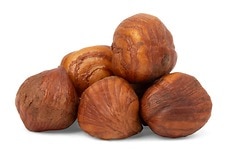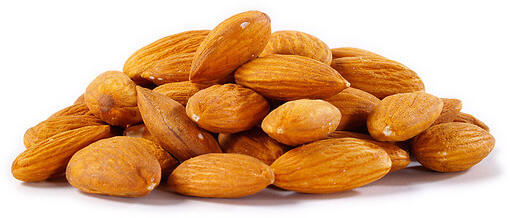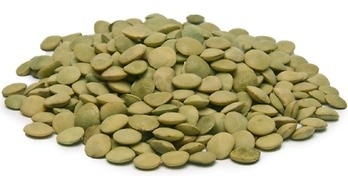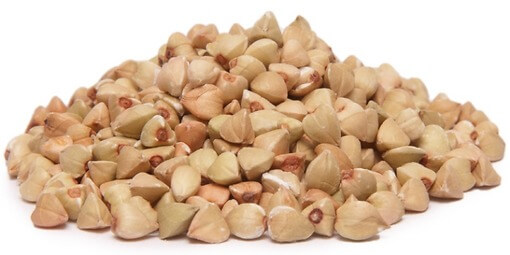Vitamin B9 (Folate/Folic Acid)
As one of the B-complex vitamins, B9 has perhaps one of the most recognizable scientific names: folate (in natural foods) and folic acid (as a supplement). This essential vitamin’s primary purpose is to help the body produce genetic material, especially during pregnancy, early childhood and into adolescence. It also helps prevent or treat a number of medical conditions, such as pregnancy-related anemia.
Foods with B9
Since B9 is water soluble (like all B vitamins), it cannot be stored within the body. Thus, the primary source of Vitamin B9 is from the foods we eat. Fortunately, it is present in a wide variety of foods including:
- Nuts and seeds, especially hazelnuts, walnuts, sunflower seeds, peanuts, flax seeds and almonds
- Whole grains, bulgur wheat and wheat germ
- Fruits (especially citrus) and berries such as oranges, grapefruit, strawberries, and raspberries, and juices made from them
- Beans including soybeans, kidney beans, lentils, mung beans, black beans and white beans
- Spinach, mustard greens, Brussels sprouts and other leafy greens
- Certain root vegetables like turnips and beets
- Other vegetables including corn, celery, carrots, asparagus, cauliflower, okra and peas
- Certain animal products like beef liver and salmon
- Dairy products
B9 Nutrition Information
Vitamin B9 is essential for helping the body replicate genetic material, including DNA and RNA. Because of this, maintaining an adequate supply of B9 is especially important for people experiencing rapid growth, including pregnant mothers, infants and teenagers.
Folate vs. Folic Acid
Folate is the name for vitamin B9 that occurs naturally in foods such as various types of nuts, seeds, fruits and vegetables. In reality, there are several different folates, all of which serve a similar purpose in the human body.
Folic acid is the name of vitamin B9 in supplement form. The chemical makeup of folic acid is slightly different from the naturally occurring form, and studies have shown that it may take the body longer to process folic acid. Even so, because of the importance to vitamin B9 in the human growth process, many countries require that certain foods – such as grain products like breads and cereals – be fortified with folic acid to ensure healthy development.
Vitamin B9 Helps Prevent Birth Defects
Numerous studies have shown that women who do not take in a sufficient amount of vitamin B9 during pregnancy are more likely to give birth to children with certain birth defects. The types of defects most often associated with B9 deficiency during pregnancy include:
- Neural tube defects, such as spina bifida – a severe condition that prevents the spinal cord from being fully enclosed by the spine and surrounding tissues
- Cleft palate – a deformation that occurs when facial tissues don’t close together properly during pregnancy
- Congenital heart defects – imperfections that develop in the heart during pregnancy
In general, women who are pregnant should get 400 – 600 micrograms (μg) of vitamin B9 per day (recommendations vary).
Medical Uses of Vitamin B9
There are a number of additional medical uses of vitamin B9.
Fertility: In addition to preventing birth defects, B9 can help increase fertility in both men and women.
Strokes: Some studies have indicated that B9 can help prevent strokes by reducing levels of homocysteine – an amino acid that can damage certain types of cells – and by regulating blood pressure.
Depression: There is some evidence that low levels of folate in the body may be linked with depression; however, further studies are needed.
Degenerative Conditions: At least one study has shown that taking supplements that include folic acid can reduce the likelihood of developing age-related macular degeneration, a condition that can result in loss of vision. Likewise, vitamin B9 may be helpful in preventing hearing loss in old age.
*This page is for informational purposes only and shouldn't replace medical advice.
Try some Vitamin B9-Rich Foods!
Healthy Eating
- Healthy Snacks
- Healthy Highlights
- 5 Uses for Cacao Powder
- 5 Ways to Eat Farro
- 6 Best Gluten-Free Foods
- Alcohol and the Body
- Almond Flour Recipes
- Anti-Aging Superfoods
- Beat the Afternoon Slump
- Benefits of a Plant-Based Diet
- Benefits of Baobab
- Benefits of Cashews
- Benefits of Coconut Oil for Hair
- Benefits of Coconuts
- Benefits of Dates
- Benefits of Fenugreek
- Benefits of Garcinia Cambogia
- Benefits of Goji Berries
- Benefits of Kale Chips
- Benefits of Monk Fruit Sweetener
- Benefits of Peanuts
- Benefits of Pecans
- Benefits of Pistachios
- Benefits of Pumpkin Seeds
- Benefits of Spelt Flour
- Benefits of Steel Cut Oats
- Benefits of Sunflower Seeds
- Benefits of Tiger Nuts
- Benefits of Turmeric
- Benefits of Walnuts
- Benefits of Wheatgrass
- Best Food Fads
- Cacao vs Cocoa
- Caffeine-Free Energy Foods
- Chocolate That's Good for You
- Diet vs. Exercise
- Fat Burning Foods
- Food Myths Debunked
- Foods for Bone Density
- Foods for Colon Health
- Foods for Healthy Hair
- Foods for Healthy Skin
- Foods to Help Sleep
- Foods to Reduce Stress
- Green Tea Benefits
- Healthy Baking Flours
- Heart Healthy Habits
- High Protein Health Risks
- How to Boost Your Metabolism
- How to Lose Weight While Aging
- How to Throw a Vegan BBQ
- Kaniwa vs Quinoa
- Little Health Foods
- Low-Carb: Fad or Friend?
- Making Healthier Desserts
- Mediterranean Diet Meal Plan
- Natural Beauty Products
- Nuts for Weight Loss
- Preparing Vegan Meals
- Preventing Muscle Degeneration
- Rare Superfoods
- Reduce Sugar Intake
- Save Time By Going Vegan
- Smarter Snack Swaps
- Smoothie Ingredients
- Soy Protein vs Whey Protein
- Starting a Plant-Based Diet
- Steel Cut vs Rolled Oats
- Sugar Substitutes
- Vegan Proteins
- Vegan Substitutions for Fall Recipes
- Why Go Vegan
- Healthy Meals
- Healthy Recipes
- Sports Nutrition
- Nutrition and Special Diets
- 21 Day Fix
- 5 Popular Diet Similarities
- Alkaline Diet
- Anti-Inflammatory Diet
- Calorie Counting
- Carb Cycling Diet
- Celiac Disease
- Cholesterol
- Clean Eating
- Crohn's Disease
- DASH Diet
- Detox Diet
- Diabetes
- Diabetes Diet
- Diet Pill Dangers
- Fat Burning Foods
- Gluten-free Diet
- Glycemic Index
- Heart Health
- High Blood Pressure Diet
- High Fiber Foods
- How to Eat Healthy
- How to Lower Blood Pressure
- Hypertension
- IBS Diet
- Ketogenic Diet
- Liquid Diet
- Low GI Foods
- Low-Carb Diet and Foods
- Low-Fat High-Carb Diet
- Mediterranean Diet
- Mediterranean Diet Foods
- Military Diet
- Nutrition Labels Explained
- Paleo Diet
- Raw Food Diet
- Superfoods
- Sustainable Weight Loss
- Thrive Diet
- Vegan Diet
- Vegetarian Diet
- Weight Loss Shakes
- Whole30








